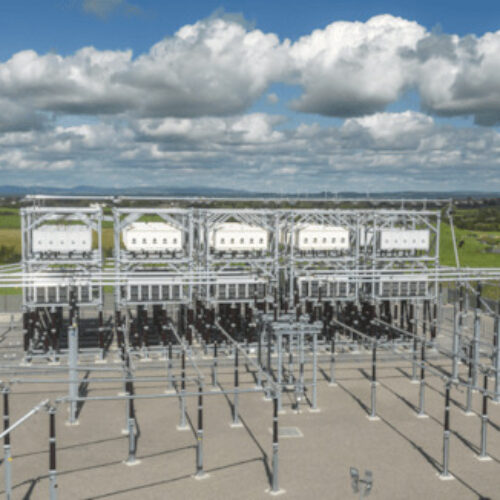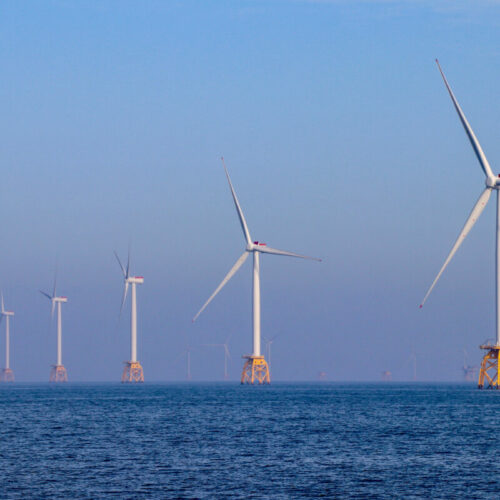By modelling typical Scottish homes, research commissioned by WWF and conducted by Cambridge Architectural Research found that air source heat pumps (ASHP) would be the “lowest cost and most versatile electric solution” for homes that currently use gas and oil boilers, reducing emissions by up to 90% annually.
Potential complications to installing heat pumps were also explored by the project, but it found that cost-effective alternatives were available to address these challenges. For example, air-to-air heat pumps would be able to address lack of space in Scottish homes for ground-sourced heat pumps.
The ‘Electrification of Heat’ Demonstration Project, reported in December 2022 that the main disincentive for 47% of its participants unwilling to have heat pumps in their home was the disruption of installation.
For heritage homes with insulation restrictions, WWF reported that internal wall insulation was an effective alternative, allowing heat pumps to still be installed in older buildings.
By presenting cost-effective solutions to common challenges cited around the installation of heat pumps, WWF stated that: “heat pumps can be fitted in almost all types of Scottish home, including smaller, older and heritage homes.”
For those living in flats, WWF recommended shared systems such as heat networks and communal systems, which would allow multiple households in the same building benefit from a singular large heat pump.
WWF called on the Scottish Government or local authorities to provide households with information on the potential so shared heating solutions by 2025.
Shared technologies that allow renewable benefits to reach people living in flats are beginning to pick up pace. Earlier this month, Allume Energy installed a ‘dynamic sharing’ system to in a Cardiff building, to help decarbonise the heating system of 24 flats sharing one solar system.
To reach the full potential of heat pump installation on the reduction of carbon emissions, the study found that energy efficiency will be key.
“Heat pumps can be fitted in almost all types of Scottish home, including smaller, older and heritage homes.”
WWF
As many as 80% of all Scottish homes would benefit from low-cost draught proofing whilst 50% should improve insulation using moderate cost measures such as double glazing and loft insulation. The study found that the average cost for this efficiency upgrades would be £1,800 per household.
Costs for ASHPs currently start at £12,000, but with the Scottish Government’s grant to support the uptake of heat pump installations (which begins at £7,500 per household), heat pumps can be bought for as little as £4,500 in upfront costs. This economic support, WWF said, is crucial to the decarbonisation of Scotland’s heat.
Using its modelling results, the project evaluated that the regulations in the Heat in Buildings Strategy, although “vital”, will not allow Scotland to reach its 2030 target.
WWF made some key recommendations for the Scottish Government to help realise Scotland’s 2030 target including setting a maximum demand for space heating between 65-85kWh per m2 per year (roughly equivalent to an energy performance certificate rating of ‘C’) to increase energy efficiency in homes and help households with upfront heat and energy efficiency costs.
The charity also called on the Scottish Government to demand an earlier transition away from fossil fuels:
- Energy efficiency: include flats within setting minimum standards of energy efficiency, and require all homes to meet these standards by 2030
- Phase-out gas boilers earlier: prevent purchase of non-condensing gas boilers from 2025, with all gas boilers phased out by 2027
- Phase-out off-gas boilers: all remaining domestic coal, oil and LPG boilers must be replaced by 2033
- Heat pumps for social houses: set social landlords a target to replace 30% of their gas boilers by 2030
- Heat networks: provide information to households about the possibility of shared heating solutions by 2025
The UK Government also has an important role to play in Scotland’s wider heat transition. Removing UK Government policy costs from electricity has reduced heat pump costs, but prices can be reduced even more through an energy market reform which limits the influence of oil and gas prices.
WWF made the following recommendations for the UK Government:
- Beyond the Energy Price Guarantee: confirm how policy costs will be removed from domestic energy bills on a permanent basis
- Reform the electricity market: actively consider existing market reform proposals in the recently launched electricity market review (REMA)
- Deliver proposals to expand heat pump deployment beyond 2024: the UK and Scottish Government should collaborate to ensure both sets of regulations work concurrently
These recommendations, will help bolster the uptake and effectiveness of heat pumps, which the report has identified as the best way to accelerate the decarbonisation of Scotland’s heat.
“Electric heat pumps, combined with some insulation improvements, are the cheapest way for most Scottish homes to achieve the crucial cuts in climate emissions that we must achieve by 2030,” added WWF.
“Significant investment is needed but this will be dwarfed by the cost of failing to act on climate change.”





